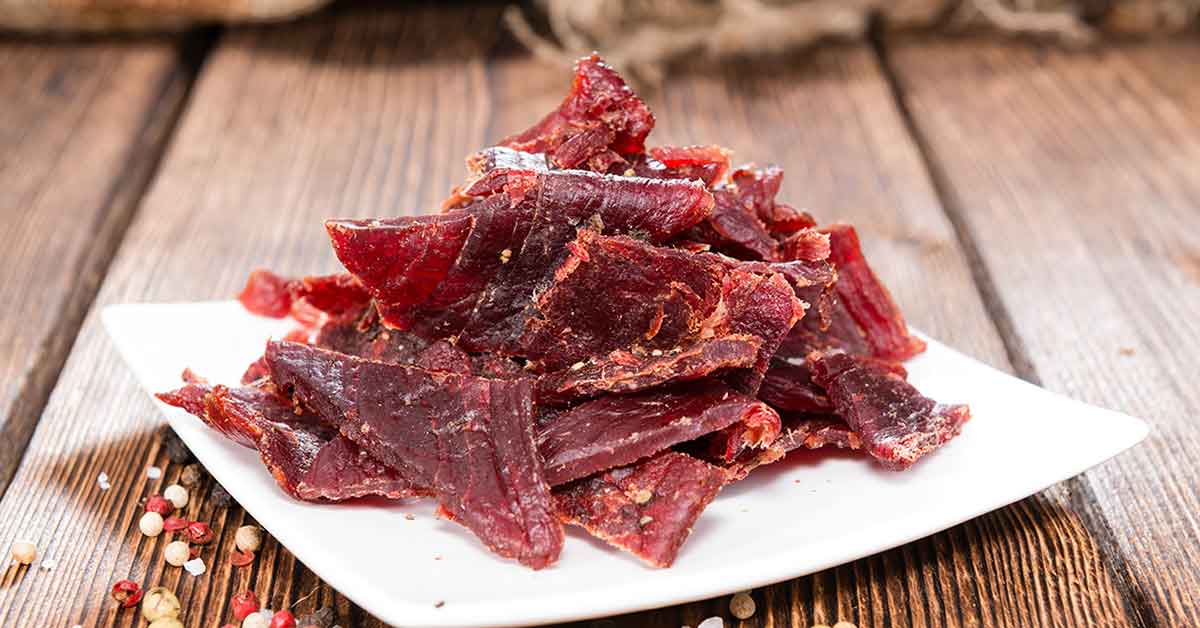Each editorial product is independently selected, though we may receive a commission if you purchase something through our links. The rating and price are accurate at the time of publication, and the items are available.
Is beef jerky healthy? It’s a savory snack that keeps you going all afternoon, but is it healthy?
Road trip snacks like beef jerky are perfect for salty cravings. There are a number of flavors available (homemade teriyaki jerky, anyone?) and it has a long shelf life. Due to its high protein and low carb content, it is a popular snack for work-from-home workers.
However, many people wonder: Is beef jerky healthy? Here’s the thing…
Benefits of Beef Jerky
Jerky is a protein powerhouse, with over 6 grams of protein per serving to keep you satisfied without weighing you down. The meat is typically marinated in seasonings before being dried and cured. The lean cuts are low in fat and carbohydrates. Beef jerky contains about 82 calories, 2.2 grams of carbs, 5.1 grams of fat, and 6.6 grams of protein per large piece.
Additionally to being a good source of lean protein, Beef Jerky Recipes contains iron, folate, calcium and vitamins A and C. Since beef jerky is preserved, it makes a handy on-the-go snack that can easily be slipped into your work bag for emergencies when hunger strikes.
Beef Jerky: Is it Good for You?
The health benefits of beef jerky are plentiful, but there are also some downsides. Since it’s cured, it contains a lot of sodium, 443 milligrams per serving (about 18% of the recommended daily amount).
Red and processed meats such as beef jerky should be limited, according to the American Cancer Society. That’s because the World Health Organization found that eating 50 grams of processed meat every day (about 2 to 3 large pieces of jerky) increases your risk of colon cancer by 18%. You may also increase your risk of prostate and pancreatic cancers if you eat that much red meat every day.
Yes, beef jerky is good for you, but it isn’t an everyday food.
Finding Healthy Beef Jerky
Finding healthy beef jerky options requires you to be familiar with food labels. Make sure there are no added nitrites or nitrates; these are preservatives that prevent bacteria from growing, but they have been linked to some types of cancer. You should also look for grass-fed, organic beef, as it will give you more vitamins and minerals without the extra antibiotics and fillers.
You can make your own beef jerky so you know exactly what ingredients are being used. Don’t have time to make it from scratch? Shop these healthy jerky brands in stores.




